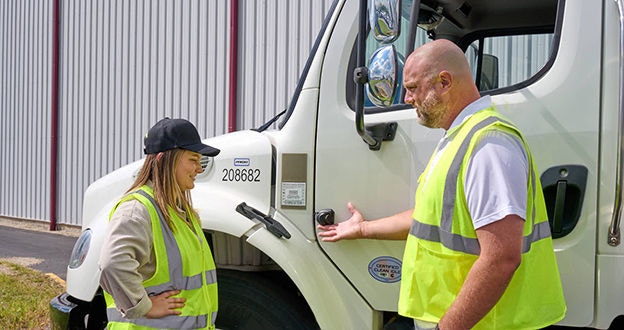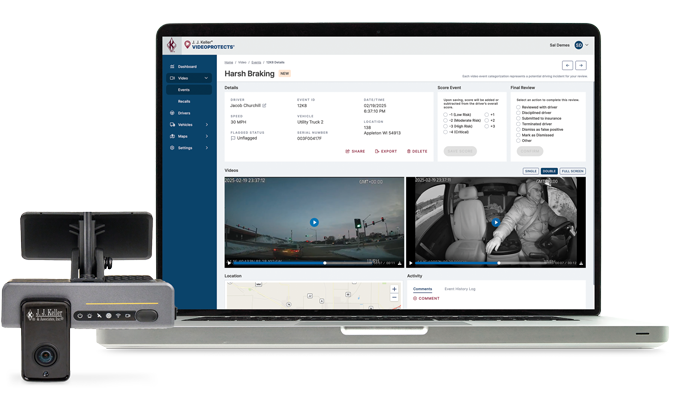Industry Business Advisor — J. J. Keller & Associates, Inc.
How Dash Cams Can Build a Safety First Culture
Far beyond being a passive recording device, dash cams actively promote accountability and professionalism, creating a safer and more responsible workplace.
Published On: 11/04/2025


Written by:
Tim Adam
In today’s fast-paced business environment, safety isn’t just a compliance requirement, it’s a core value that defines organizational culture. For companies with fleets or employees on the road, building a safety-first culture is essential. One powerful tool that supports this mission is the dash cam. Far beyond being a passive recording device, dash cams actively promote accountability and professionalism, creating a safer and more responsible workplace.
Visibility = Accountability
Accountability starts with visibility. Dash cams provide an unbiased look at what happens on the road. This transparency encourages drivers to adhere to safety protocols because they know their actions are documented. When employees understand that their performance is visible, they are more likely to make responsible decisions—whether it’s obeying speed limits, avoiding distractions, or practicing defensive driving. This sense of accountability reduces risky behaviors and helps prevent accidents before they occur.
Dash Cams Protect Your Brand
For many businesses, drivers are the face of the company. Their behavior on the road reflects directly on the brand. Dash cams help reinforce professionalism by reminding drivers that their conduct matters. Knowing that their actions are monitored fosters courteous driving, proper vehicle handling, and adherence to company standards. This not only protects the driver but also enhances the company’s reputation in the eyes of customers and the general public.
Train Before It's Too Late
Dash cams don’t just record; they provide training opportunities. Modern systems can flag harsh braking, rapid acceleration, or distracted driving. Managers can use this data to coach employees, recognize safe driving habits, and address areas for improvement. This proactive approach transforms safety from a reactive process into a continuous improvement cycle, where every trip contributes to building a stronger safety culture.
Video Evidence is Your First Line of Defense
In the event of an incident, or crash, dash cam footage serves as an objective witness. It can exonerate drivers from false claims, reduce liability, and streamline the insurance process. This protection fosters trust between employees and the organization, reinforcing the message that safety measures exist not to punish, but to safeguard everyone involved.
Closing Thoughts
Ultimately, dash cams are more than telematics, they are a tool for cultural change. By promoting transparency, accountability, and professionalism, they help organizations move beyond compliance toward a genuine safety-first mindset. When employees feel supported and understand that safety is a shared responsibility, the entire organization benefits, from reduced accidents and costs to improved morale and customer confidence.
Communicating with your drivers prior to implementation of this program will help them understand your intentions. When drivers see tools that help them do their job more safely, they will become more receptive to having them in the truck. Outlining the training process ahead of time helps them know what to expect. Celebrating changed behavior gives them a feeling of confidence and value. Dash cam programs that are used only as a punitive measure are seldom successful.

VideoProtects® Fleet Camera System
J. J. Keller’s VideoProtects® Fleet Camera System provides a full suite of safety features for improving driver safety and minimizing your fleet’s risk. Because it’s platform-independent, you can use it for any type of vehicles and with any fleet management software.
You may also enjoy the following articles:
Sign up for our newsletter!
We'll help you stay on top of regulations, best practices, and fleet industry news. Sign up to receive a monthly email notification with links to our most recent blog articles, free resources, and event invites.